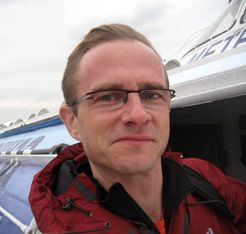Message from Director
CIPS is an Organized Research Unit at the University of California, Berkeley. Our task is to unite scientists and students from many disciplines on a rapidly emerging scientific landscape characterized by striking developments that include:
- adaptive optics imaging and high-resolution spectroscopy that open up a new era of observational planetary astronomy
- recent discoveries of the first known extrasolar planets
- new research into the life cycles of extremophile bacteria, some of which survive in environments that are very hot or very cold
- advances in the theory of orbital dynamics that are helping us understand physical models for planetary system evolution
- paleobiological analyses of Earth’s fossil record, showing that the introduction of biological complexity occurred suddenly
- space mission discoveries that one or more of Jupiter’s moons contain oceans
- the discovery of ultra-high pressure chemical reactions deep with the Earth, and development of the first experimental constraints on the melting temperature of iron at Earth’s core pressures
These discoveries, and others during the past decade, have revealed a remarkable set of connections among many separate traditional sciences: Geophysics, Astrophysics, Meteorology, Oceanography, Organic Chemistry, Biology and Planetary Science. These disciplines are well represented at Berkeley, where strong research programs with long records of accomplishment have existed for some time in diverse campus departments, the Space Science Lab, and the Livermore Lab. CIPS takes advantage of these strengths with the integrated study of the physical origin and geochemical evolution of planets and planetary systems.
Much of the compelling research about our solar system and about other planetary systems will require knowledge across traditional disciplinary boundaries. From the condensation of planets within protoplanetary discs to the geochemical history of planets and moons, future researchers will require frontier knowledge of all related disciplines.We plan a vigorous program of research, new faculty, visitors, graduate and undergraduate teaching, and public outreach.

Burkhard Militzer, CIPS Director
